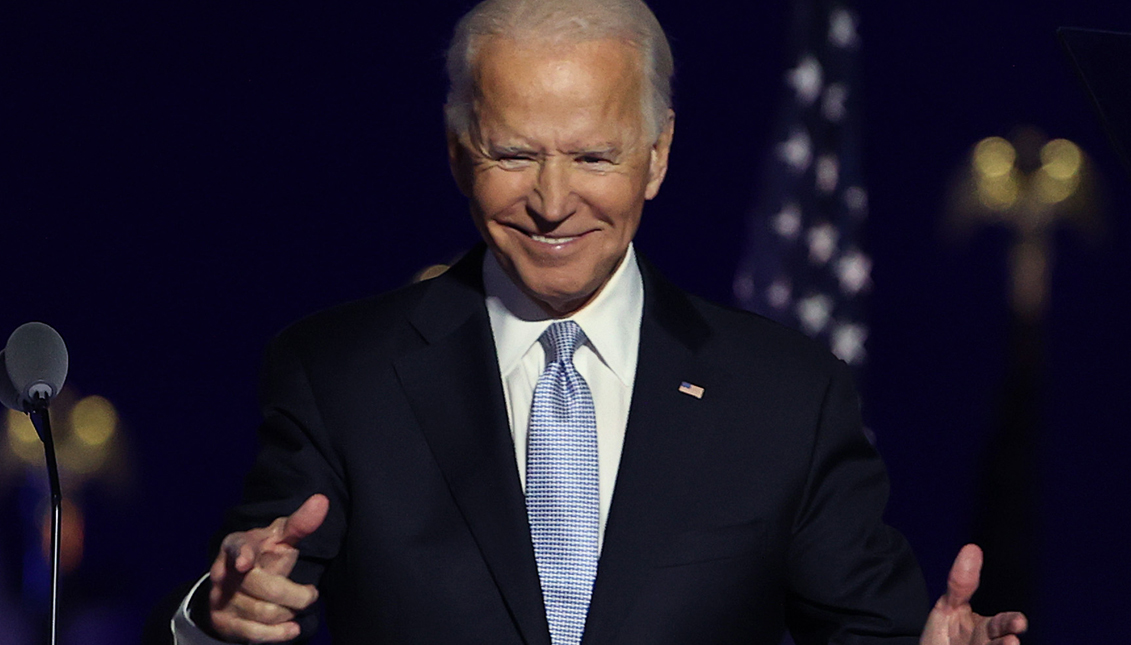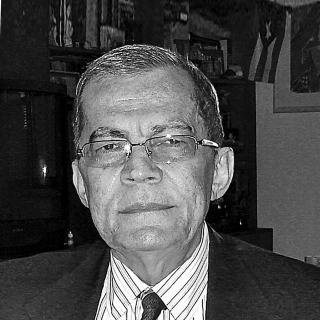
What does Joe Biden's victory mean for Latin America?
MORE IN THIS SECTION
It has been said that when the U.S. sneezes Latin America catches cold. And these last four years, whoever uttered those words must be pretty satisfied with their accuracy, although the intensity of the breathing problems varied mightily from country to country.
No Latin American nations were more affected by Donald Trump’s draconian – murderous some would say --measures against them than Cuba and Venezuela, which despite their carefully worded reactions to Joe Biden’s triumph, must be breathing a little more easily already.
“Trump wanted to bury us alive,” Mercedes Rodríguez, 43, a Havana teacher, told news agency Reuters, and her words could have been said by most other Cubans.
As professor and former diplomat Carlos Alzugaray, a Havana resident said, “Joe Biden has pledged to reverse Donald Trump's policy toward Cuba and resume President Barack Obama’s policy. At the center of that policy was the normalization process agreed with President Raúl Castro, a process that was carried out to mutual satisfaction until Trump paralyzed and reversed it. It is worth remembering how Obama defined it in his last State of the Union address before a joint session of Congress, in January 2016. I quote the paragraph:
"Let me give you another example. Fifty years of isolating Cuba had failed to promote democracy and set us back in Latin America. That’s why we restored diplomatic relations -- (applause) -- opened the door to travel and commerce, positioned ourselves to improve the lives of the Cuban people. (Applause.) So, if you want to consolidate our leadership and credibility in the hemisphere, recognize that the Cold War is over -- lift the embargo." (Applause.)
In an interview with NBC 6 Anchor Jackie Nespral, President-elect Biden said: “I’d try to reverse the failed Trump policies that inflicted harm on Cubans and their families. It’s done nothing to advance democracy and human rights, on the contrary, the crackdown on Cubans by the regime has gotten worse under Trump, not better.” A top Biden foreign policy adviser also told Reuters that the new president would “reverse measures that are separating families, limitations on family travel and remittances.” This could mean, for example, the re-staffing of the U.S. embassy in Havana, which the Trump administration reduced to a minimum with the excuse of a mysterious “sonic attack” affecting U.S. diplomats. Yes, there is hope for better relations with Cuba.
Venezuela is a different case, and Biden, who was one of the architects of the sanctions against the oil-rich South American country during his tenure as Barack Obama’s vice president, has vowed to maintain them. For some unclear reason the Obama administration slapped Venezuela with the title of a U.S. national security threat. Currently, an embargo is affecting that nation’s economy and making life more difficult for its people. Yet, Biden has said he would “think about” meeting the Venezuelan president Nicolás Maduro, while endorsing Trump’s definition of Maduro as a “pure and simple dictator” and his recognition of self-declared “Interim President” Juan Guaidó as Venezuela’s leader.
Yet, U.S.-Venezuela relations have been at such a low point during the last four years that if they move at all they can only do it upwards once Biden takes over. Keep in mind that Trump, in a take back to the Old West, offered a $15 million reward for the Venezuelan president’s head.
Then, there is Venezuela’s neighbor, Colombia, Washington’s favorite daughter. She can do no wrong and gets away with, literally, murder, hundreds of them.
Despite the raging pandemic and Amnesty International’s condemnation, social leaders are being systematically exterminated in the South American nation: At least 223 social leaders – community activists defending human, environmental and land rights – have been murdered so far this year.
Yet, as Biden wrote in an October 7 Sun Sentinel op-ed piece, for him “Colombia is the keystone of U.S. policy in Latin America and the Caribbean.” Certainly, Colombia has played an important part in Biden’s political life, well before he was elected vice president. While a Senator, Biden helped create and sustain the multi-billion-dollar anti-drug campaign Plan Colombia, as chairman (and ranking member) of the Senate Foreign Relations Committee, a controversial initiative to say the least, of which he is still proud.
“I championed Plan Colombia from the very beginning and secured bipartisan support for its passage through Congress…It is one of the most successful—and bipartisan—foreign policy undertakings of the last half century.”(Sun Sentinel, Oct. 7.) But in reality, Plan Colombia hasn’t been successful by any stretch of the imagination.
As the Center for Popular Democracy Action wrote in a tweet, “Plan Colombia used murderous, failed drug war policies as cover to destabilize democracy in South America, arming right wing death squads so openly that Congress had to force it to stop with an amendment.” Worrisome, to say the least.
RELATED CONTENT
Biden, who was Obama’s point man for Latin America, has vast experience in the region. He was the public face of the Obama administration’s ambitious 2015 Alliance for Prosperity, a $1 billion plan to fund development, security and good governance initiatives in Central America.
But as The Intercept reports, “The money — $750 million was eventually approved-- primarily went to security assistance, which increased from $161 million in 2015 to $252 million in 2016. As Alexander Main, of the Center for Economic Policy Research, put it, the money was for “increasingly militarized police forces and military forces involved in countless human rights abuses, including the assassination of activists like Berta Cáceres in Honduras.”
His new “Biden Plan for Central America, updates the 2015 policy to use $4 billion in foreign aid over four years to fund and back anti-corruption efforts in Guatemala, Honduras, and El Salvador; push them to reduce migration and fight human trafficking; and decrease poverty. Biden has long blamed these factors for migration to the United States and violence in migrants’ home countries.”
Hopefully, this time the money will really go to attack desperate poverty, which is the root of the problems in Central America together with corrupt governments and uncontrolled violence.
Then there is Mexico’s president Andrés Manuel López Obrador’s (AMLO) totally unexpected refusal to congratulate Biden, which points to the complexity of relations between the two neighboring countries. The only other Latin American leader holding back his “felicidades” was no surprise. He is no other than Brazil’s ultra-rightist president Jair Bolsonaro, the staunchest Trump sympathizer in the region. AMLO, on the other hand, is a left-leaning political figure who has said he wants to wait for U.S. authorities to certify Biden formally as the victor before sending his congratulations.
Will AMLO’s attitude affect Mexico’s relation with the U.S. as some pundits have expressed? Not much, after all Mexico, the country Trump has vilified in countless occasions, is the U.S. largest trade partner.
Something is certain, Trump’s border wall will not be completed by the Democratic president, who has said that “immigration is central to who we are as a nation.”
Yet, the question is if a Joe Biden administration will set more than a new tone in its relation with Latin America. Or if it will fail again, as previous administrations have done, to go beyond investing mainly on security forces that end up repressing and even murdering the people, instead of on social and economic programs to improve the people’s lives and provide them with the opportunity to escape poverty?
Latin America is sure to breathe easier once Trump is no longer president and Joe Biden sits in the White House. But only time will tell if it will get cured of its cold.







LEAVE A COMMENT: